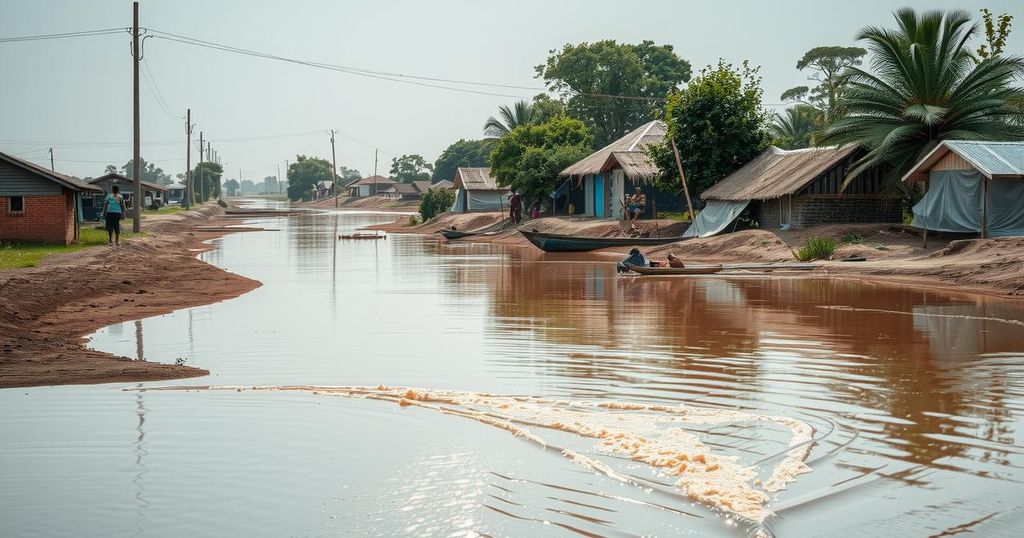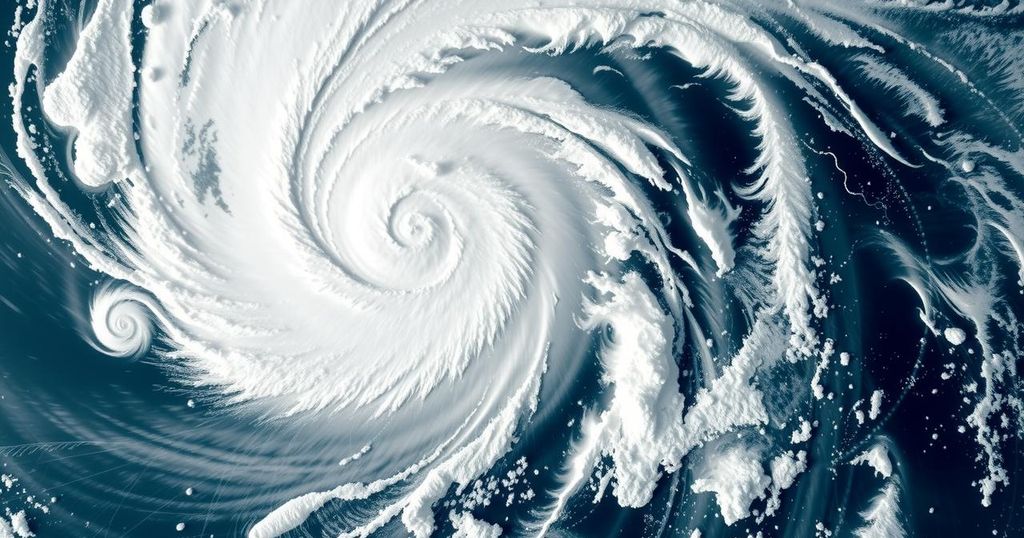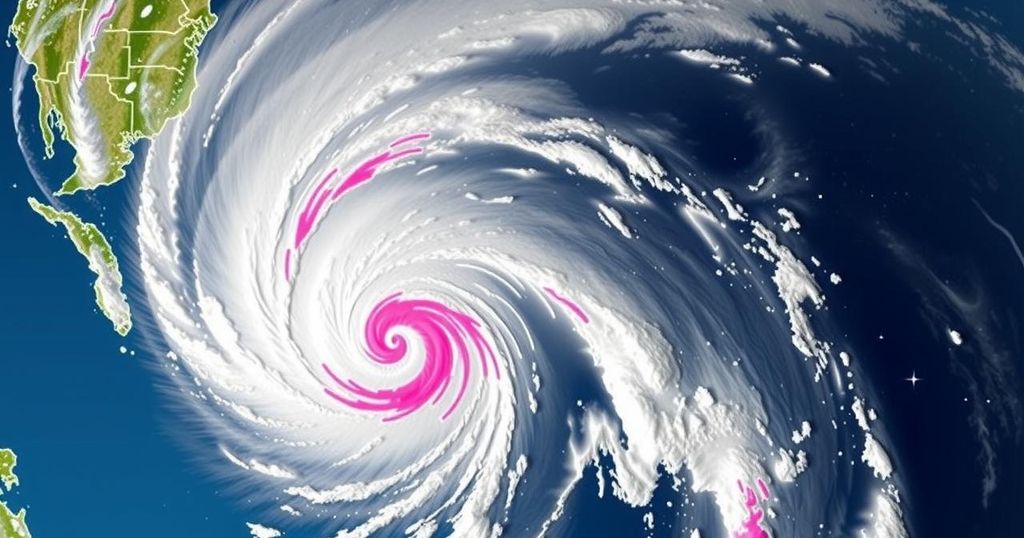Cyclone Chido Devastates Mayotte: A Wake-Up Call on Climate Change and Preparedness
Cyclone Chido has caused extensive destruction in Mayotte, resulting in at least 22 deaths and significant infrastructure damage. The storm’s intensity is attributed to rising ocean temperatures linked to climate change. This situation highlights the pressing need for improved weather forecasting systems and preparedness strategies in vulnerable regions before future cyclones.
The Indian Ocean archipelago of Mayotte is grappling with the aftermath of Cyclone Chido, which has emerged as the most powerful storm to impact the territory in nearly a century. Following Chido’s landfall on Saturday, reports indicate at least 22 fatalities, as overwhelming winds obliterated communities, inflicted significant damage to vital infrastructure, and uprooted trees. Experts have cautioned that the intensity and frequency of storms in this region are escalating, predominantly due to anthropogenic climate change, which contributes to warmer ocean temperatures fueling such cyclones.
In southeast Africa, the cyclone season persists from December to March, coinciding with the period when ocean temperatures are highest, reaching their peak, thus creating conducive conditions for tropical storms. Recent years have witnessed an alarming frequency of severe storms, including Cyclone Freddy in 2023, Batsirai in 2022, and Idai in 2019, all wreaking havoc across Malawi, Mozambique, Zimbabwe, and Madagascar during the southern hemisphere’s summer months. In this context, it must be noted that cyclones in the Indian Ocean and Australia are termed as cyclones rather than hurricanes.
The link between climate change and cyclonic activity is well-established, with rising global temperatures corresponding to elevated sea surface temperatures—crucial for cyclone formation. Currently, the atmosphere is approximately 1.3 degrees Celsius (2.3 degrees Fahrenheit) warmer than pre-industrial levels, with the water temperature prior to Cyclone Chido reaching nearly 29 degrees Celsius. This elevation in temperature substantially enhances the intensity of storms, leading to more potent winds, increased rainfall, and more severe storm surges.
A 2022 study highlighted that climate change exacerbated the cyclones experienced in southeast Africa yet noted a scarcity of weather data hindered an accurate quantification of its effects. Furthermore, the continent faces a significant shortage of early warning systems, as reflected in statistics from the World Meteorological Organization, which reveals only 37 radar facilities for monitoring weather conditions across Africa, compared to 291 in North America and 347 in Europe. This deficiency results in inadequate preparedness for extreme weather events, often leading to catastrophic outcomes when storms strike.
In light of these challenges, the United Nations has undertaken initiatives aimed at establishing global early weather-warning systems within five years. The Secretary-General of the WMO, Celeste Saulo, has emphasized the priority of enhancing weather forecast accessibility, stressing that adaptation to climate change is vital.
The crisis following Cyclone Chido illustrates the urgent need for improved weather monitoring infrastructure and effective strategies to address the increasing frequency and severity of cyclones in the region, exacerbated by climate change.
Cyclone Chido, hitting Mayotte with record intensity, underscores the greater issue of climate change influencing cyclonic activity. The last major cyclone to devastate the region occurred over 90 years ago, yet modern climate science indicates ongoing warming trends linked to human activity, primarily the combustion of fossil fuels. The resulting warmer ocean temperatures fuel the intensity of storms, with the cyclone season in southeast Africa presenting significant risks due to rampant climate variability. This accentuates the importance of adequate forecasting and early warning systems in the vulnerable, underserved regions of the continent affected by these natural disasters.
Cyclone Chido has revealed the devastating impact of increasingly severe storms on Mayotte and underscores the urgent need for enhanced weather monitoring and preparedness strategies. The link between rising ocean temperatures and the intensification of cyclones further highlights the need for action against climate change. Implementing early warning systems will be crucial in mitigating the loss of life and property during future cyclonic events, marking an essential step toward safeguarding vulnerable populations in southeast Africa.
Original Source: www.seattletimes.com




Post Comment